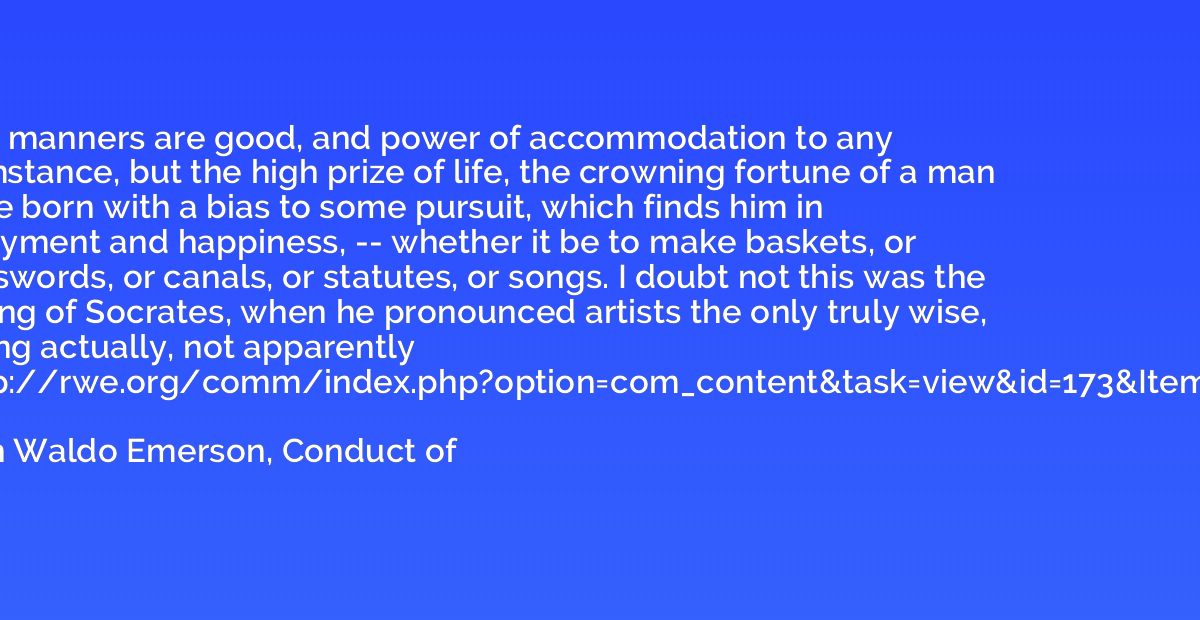Ralph Waldo Emerson, Conduct of Quotes
A collection of quotes by Ralph Waldo Emerson, Conduct of .
Ralph Waldo Emerson (1803-1882) was a renowned American essayist, lecturer, philosopher, and poet. He was born in Boston, Massachusetts, and grew up in a Unitarian household, where his father served as a minister. Emerson attended Harvard College at the age of 14 and later became a Harvard Divinity School graduate. However, he left his ministry career due to personal doubts about traditional religious practices.
Emerson emerged as a leading figure of the Transcendentalist movement, which emphasized the importance of individualism, self-reliance, and the spiritual connection between nature and humanity. His iconic essay, "Nature" (1836), laid the foundation for this philosophical movement, exploring themes of spirituality, intuition, and the intrinsic value of the natural world.
As a lecturer, Emerson delivered hundreds of engaging and intellectual speeches across the United States, promoting his ideas of self-reliance, nonconformity, and the pursuit of truth. He came to be recognized as a stirring orator and influential thinker of his time.
Emerson's essays, such as "Self-Reliance," "The American Scholar," and "Experience," reflected his belief in the power of the individual to shape society and transcend societal norms. His poetic works, including "Concord Hymn" and "The Rhodora," celebrated the beauty of nature and its profound impact on human spirituality.
Ralph Waldo Emerson's writings continue to inspire and influence generations with their emphasis on individuality, intuition, and the interdependence between humans and the natural world.



